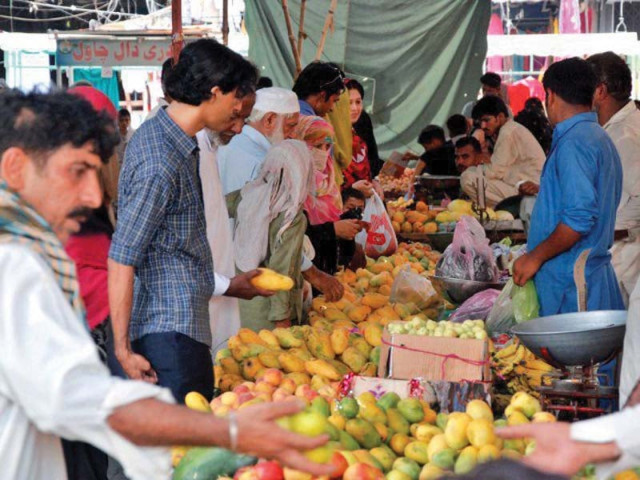CCP plan: lots of hurdles along the way
Numerous potential pitfalls might be deal-breakers

Numerous potential pitfalls might be deal-breakers. PHOTO: FILE
It is an effort belated, but essential to help the low- and middle-income group whose predicament is the constant upswing in the prices, especially of those, the supply of which curves down when shortages are caused by non-crop season or by sluggish imports and provisions.
The plan includes devising and implementing a uniform pricing formula by all provinces at a whole sale level, mapping of commodities’ supply in the country, establishing agricultural supermarkets for farmers on a public-private partnership model, establishing a monitoring commission to decide on timely import and export permissions related to food commodities and fixing a support price of declining crops along with maintaining a security buffer stock to counter supply shortages.
Though an honest effort, some aspects of the strategy could be reviewed, given the factors that might come into play and defeat the endeavour on grounds of it being ‘unrealistic.’
For instance, the uniform pricing formula to be adopted in all provinces at a wholesale level might not work due to the transport-charges difference. The supply chains in Pakistan are spread from south to north and from the centre (middle of the Punjab province) to the south and north.
It is true that most of the packed and the branded goods are sold at similar prices at the retail levels in all provinces, notwithstanding the difference in their dealer or wholesale prices. But that does not mean that the charges of transporting these goods would be similar too.
It is either the company foots the extra bill or the retailer has to incur the cut on the profit margin.
Expecting the wholesalers to accept a formula for uniform price mechanism might not be realistic.
Keeping in view this reality of the market situation, governments should set aside an amount for subsidising the consumer price or retailing through a price-stabilising mechanism like the chain of ‘Utility Stores’ in Pakistan.
Though it is yet to be seen as to how the CCP would ensure the wholesale price uniformity in all provinces, if they succeed without irritating the wholesale community, it would be a great achievement.
Mapping of commodities' supply in the country is a strategy that would be limited to major products and materials like petroleum, electricity, gas, cooking oil, sugar, onions, tomatoes, potatoes and cement. The rest of the commodities need to be left to the market mechanism while ensuring that transportation, transmittance and pipe-lining do not run into major breakdowns.
Establishment of agricultural supermarkets for farmers on public-private partnership model is a great idea. But should it be supervised by the lethargic bureaucracy?
I would rather see the local government, the provincial and federal legislatures form up supervisory committees of experts and stakeholders.
In countries like the US, Canada, the Netherlands, Germany, Japan and even India, such committees play their roles based on expertise as well as stake-holding. The modern world agrees that mega projects and institutions cannot be made operative and sustainable without the involvement of experts and stakeholders.
Similarly, establishing a monitoring commission to decide on timely import and export permissions related to food commodities is a tricky area.
The media has lately found tons of juicy material for scandal-reporting on sugar, wheat, rice, and pulses import-export. It is common knowledge in Pakistan that the Trade Development Authority (TDAP), Ministry of Commerce and other relevant institutions lack even the basic data of import and export feasibility for scores of goods and materials.
The proposed commission must have a team of data collectors and analysts if they desire to succeed in this mission.
The most appealing proposal of the CCP is: fixing support price of the declining crops, and maintaining a security buffer stock to counter supply shortages.
No one in Pakistan would disagree with the idea of subsidising the declining crops, but there would be a nationwide difference of opinion on the crop list. The CCP also needs to offer arguments in support of a list it might dish out for this purpose. That would be a great favour to the cropland of Pakistan.
The writer has worked with major newspapers and specialises in the analysis of public finance and geo-economics of terrorism
Published in The Express Tribune, October 19th, 2015.
Like Business on Facebook, follow @TribuneBiz on Twitter to stay informed and join in the conversation.



















COMMENTS
Comments are moderated and generally will be posted if they are on-topic and not abusive.
For more information, please see our Comments FAQ